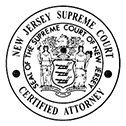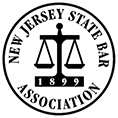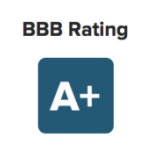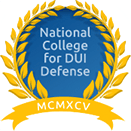Cranford NJ Hindering Defense Lawyer
We assume that you have been charged with hindering in Cranford or another municipality in Union County given your research. Hindering apprehension or prosecution for a a criminal or motor vehicle offense arises out of N.J.S.A. 2C:29-3 of the New Jersey Criminal Code. This charge applies in two contexts, namely, when an individual engages in conduct intended to hinder apprehension or prosecution of someone else and, secondly, instances where the conduct is undertaken by the target of an investigation or prosecution. If you or your loved one was arrested for hindering anywhere in Union County, including Scotch Plains, Elizabeth, Union Township or Plainfield, a defense lawyer at the Law Offices of Jonathan F. Marshall is available immediately to assist you. You should also know that the attorney at our firm possess unique credentials for success with multiple former prosecutors on staff and a team with over 100 years of combined experience. To speak to one of the lawyers immediately, contact our Union Office. A lawyer can be reached 24/7 for free consultation at 908-272-1700.
New Jersey Hindering Law: N.J.S.A. 2C:29-3
In order to be found guilty for hindering under N.J.S.A. 2C:29-3, an individual must possess the purpose to hinder when they engage in the illegal conduct. The following is a breakdown of some of the more important issues that arise in both categories of hindering.
I. Apprehension or Prosecution of Another Person. There are seven (7) ways that an individual can commit this form of hindering: (1) Harboring or Concealing A Person , including helping them hide; (2) Aiding A Person In Avoiding Apprehension , including providing money, weapons, or transportation; (3) Concealing, Destroying or Tampering With Evidence ; (4) Warning The Target Of Impending Apprehension; (5) Using Force, Intimidation or Deception to Avoid Discovery or Apprehension; (6) Assisting The Person In Protecting or Collecting A Criminal Derived Profit ; and (7) Providing False Information.
II. Apprehension or Prosecution Of Yourself. There are four (4) ways to hinder your own prosecution pursuant to N.J.S.A. 2C:29-3: (1) Conceal, Destroy or Tamper With Evidence ; (2) Using Force Or Intimidation To Avoid Discovery Or Apprehension ; (3) Using Force, Intimidation or Deception To Obstruct A Witness or Informant ; or (4) Giving False Information .
There is no exception or immunity from prosecution irrespective of the relationship between the defendant and the person who is being charged or investigated for violating the law. Accordingly, hindering applies even if the person sought to be protected is the child or spouse of the accused.
Providing False Information To Law Enforcement or Insurance Fraud Investigators
The most frequent variety of hindering occurs when someone provides false information to police or other members of law enforcement. In order to commit this form of hindering apprehension, the actor must have a purpose to hinder. In other words, they must possess the objective of hindering the apprehension, detection, investigation, prosecution, conviction or punishment of either them or another. The classic example of this violation is where the accused provides a false name to police during an investigation. A closely related companion offense to hindering is obstructing the administration of law.
Grading of Offense. If force, intimidation or deception is used to hinder, then this is a second degree crime except where the person being aided is the spouse or child of the defendant, in which case it is a fourth degree crime. If the offense does not involve this type of conduct and concerns hindering to avoid prosecution for a crime of the second degree or higher, then this is a third degree crime. The same grading reduction applies, however, to spouses and children thereby rendering the charge a fourth degree crime. Hindering is also a fourth degree crime when false information is given to avoid a prosecution for a third degree crime. Hindering is a disorderly persons offense in all other cases.
Penalties. The maximum prison term is 10 years for second degree hindering, 5 years for third degree hindering, 18 months for fourth degree hindering. An individual may be sentenced to up to six (6) months in the county jail for a disorderly persons offense of hindering. The fines can reach $150,000, $15,000, $10,000 and $1,000 for second, third, fourth and disorderly persons hindering, respectively.
Union NJ Hindering Attorney
Our Union NJ criminal defense firm is comprised of seasoned lawyers who are ready to protect your interests. The Law Offices of Jonathan F. Marshall handles this charge in Springfield, Kenilworth, Mountainside, New Providence, Linden and other locals in Union County. For an immediate appointment or telephone conversation with an attorney on our staff, call 908-272-1700. Lawyers are available around the clock to conduct free initial consultations.












